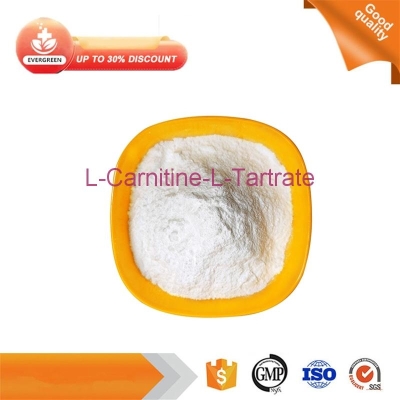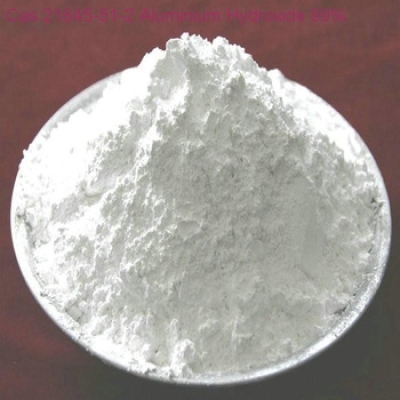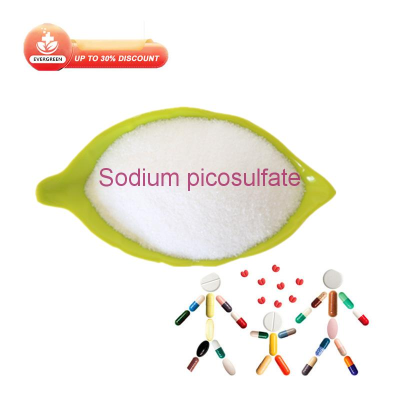-
Categories
-
Pharmaceutical Intermediates
-
Active Pharmaceutical Ingredients
-
Food Additives
- Industrial Coatings
- Agrochemicals
- Dyes and Pigments
- Surfactant
- Flavors and Fragrances
- Chemical Reagents
- Catalyst and Auxiliary
- Natural Products
- Inorganic Chemistry
-
Organic Chemistry
-
Biochemical Engineering
- Analytical Chemistry
- Cosmetic Ingredient
-
Pharmaceutical Intermediates
Promotion
ECHEMI Mall
Wholesale
Weekly Price
Exhibition
News
-
Trade Service
*It is only for medical professionals to read for reference.
Helicobacter pylori has been frequently searched recently.
It is time to cure it! Helicobacter pylori (Hp) infection is related to a variety of gastrointestinal and extra-gastrointestinal diseases.
At present, a number of international and domestic consensus opinions have proposed corresponding eradication treatment options, but there are still some patients with repeated treatment failures, which not only troubles Clinical workers, and bring a greater psychological burden to patients
.
At the 21st National Academic Conference on Digestive Diseases this year, Professor Lu Nonghua from the First Affiliated Hospital of Nanchang University described the treatment of refractory Helicobacter pylori infection from four aspects, helping us to correctly understand and standardize management This part of the patient
.
01 Controversy over the definition of refractory infections Generally speaking, the clinical definition of "refractory" requires explanations of drugs, dosage, and course of treatment.
For the treatment of H.
pylori, it has a complex composition and numerous options; In terms of dosage: there is a certain range; in terms of treatment course: it is not uniform, there are 10d~14d treatment courses, so its definition is difficult to standardize
.
At present, most of the definitions of "refractory Hp infection" refer to recommendations in accordance with relevant consensus.
This concept is very vague
.
According to relevant consensus, French scholars first proposed the concept of refractory Hp infection in 2003, and believed that the eradication failure was ≥2 times, which is called refractory infection
.
In 2017, China's Professor Hu Fulian proposed that the eradication failure ≥ 3 times is a refractory infection
.
In 2021, experts from the American Gastroenterology Association (AGA) believe that a refractory infection is considered a failure to eradicate ≥1 times
.
Therefore, at present, there is still great heterogeneity in the definition of "refractory Hp infection"
.
Therefore, Professor Lu Nonghua suggested that the term "multiple treatment failures" may be more appropriate than "refractory infections
.
"
"Multiple treatment failures" means failure ≥ 2 times, which reflects objective facts and facilitates unification
.
02 Why pay attention to refractory infections In 2021, AGA issued a review of experts on the treatment of refractory Helicobacter pylori infection, indicating that the treatment of refractory Helicobacter pylori infection has become a hot spot
.
The reasons are as follows: 1.
At present, people have fully understood the harm of Hp infection: Hp can cause a variety of gastrointestinal and parenteral diseases, and the final outcome of infected individuals is difficult to predict
.
Some patients can develop gastric cancer
.
The 2020 Taipei Consensus pointed out that more than 85% of gastric cancers worldwide are attributed to Hp infection.
If Hp infection is eliminated from the population, most gastric cancers can be prevented
.
2.
The eradication of Hp has a high cost-benefit ratio: the eradication of Hp is mostly one-time (a few require multiple times), short-term (≤2 weeks), and the cost is not high (200~500 yuan), and the benefits such as The prevention or long-term alleviation of indigestion, the prevention or cure of ulcers, and the reduction of the risk of gastric cancer are long-term and multifaceted
.
3.
Hp eradication rate is declining: Professor Graham proposed that the eradication rate of Hp eradication program should be at least Grade C (85%-89%) (Table 1), but the current eradication rate is gradually declining
.
Table 1 Why does the report card grade 03 proposed by Graham cause intractable treatment? The current domestic and international consensus recommendations have an eradication rate of ≥85%~90%, and the factors that cause the decline in the eradication rate are the increase in the resistance rate of Hp on the one hand, and the failure of clinicians to follow the relevant consensus recommendations on the other
.
According to statistics from the European Hp Treatment Registry (Table 2) The eradication rate of non-bismuth quadruple therapy for 14 days and bismuth quadruple therapy for 10 days is >90%, while the average eradication rate of triple therapy is only 81.
5% (so it is not recommended)
.
Table 2 Statistics on the effects of different Hp eradication programs in Europe.
In addition, the data points out common problems and lessons in Hp eradication in Europe: ①Standard triple therapy is used in ineffective areas (high drug resistance rate), and the eradication rate is only 60%~80% (problems occur) Rate 46%)
.
②The eradication therapy (69%) was adopted for 7-10 days of treatment
.
According to consensus, unless the 10-day therapy is proved to be effective, the 14-day therapy is recommended .
③ Repeated use of certain antibiotics after eradication failure (15%)
.
The current curative effect of the program recommended by the consensus opinion in China can reach Graham C~B (Table 3), and has been internationally recognized, but it needs to be based on several important recommendations, including: if you are not allergic, choose a program containing amoxicillin as much as possible; do not repeat Application of clarithromycin and levofloxacin; repeated application of metronidazole requires increased dose
.
Table 3 Efficacy of China's consensus recommendations.
Therefore, failure to follow China's consensus recommendations is the main reason for the failure of eradication
.
04How to deal with refractory infections In 2021, AGA experts commented that the main reasons for refractory Hp infection (effects of eradication treatment ≥1 times) are bacterial resistance, insufficient acid suppression, and low compliance
.
Therefore, the 12 best clinical practice recommendations are summarized under these three main reasons: 1.
Bacterial resistance: divided into empirical treatment and empirical treatment based on susceptibility treatment: ①The local antibiotic resistance rate/program eradication rate needs to be provided; ② Provide individual antibiotic application history; ③Try to choose amoxicillin (for those who have been marked as penicillin allergies but no history of anaphylactic shock, consider taking penicillin skin test again; if the amoxicillin dose is larger, ≥2g/d, it is recommended (3 or 4 doses); ④Increase the dose of metronidazole; ⑤Extend the course of treatment; ⑥Use rifabutin (not recommended by our consensus, China is a big country with tuberculosis, and tuberculosis resistance needs to be avoided); ⑦Combined microecological preparations The efficacy of improving the eradication rate needs to be further studied
.
Based on drug susceptibility: For patients with proven compliance, if eradication fails ≥ 2 times, it is recommended to use drugs based on drug susceptibility
.
2.
Insufficient acid suppression: ①Select the stronger PPI (less affected by the CYP2C19 gene polymorphism); ②If the genetic test is not performed, you can also increase the PPI dose; ③Choose P-CAB (such as Vonola Health) instead of PPI
.
3.
Low compliance: ①Explain to patients the benefits and potential adverse reactions of Hp eradication; ②Maintain doctor-patient communication
.
At the same time, AGA also proposed that for vulnerable groups such as the elderly, the benefits and adverse consequences of eradication treatment should be carefully weighed
.
However, one of the 12 recommendations lacks an important one, that is, multiple consensuses agree that in areas with unknown or high drug resistance rates, empirical treatment emphasizes the application of bismuth-containing agents
.
The AGA mentioned four consensus opinions on the treatment of refractory Hp infection (Table 4).
Through comparison, it can be seen that the 7 bismuth-based quadruple regimens recommended by the consensus in China are relatively simple, operability, and curative.
Stable
.
Therefore, although the current Hp resistance rate is increasing, if the medication can be regulated and the guidelines are followed, the eradication rate can still be increased
.
Table 4 Consensus opinions related to refractory Hp infection.
Finally, Professor Lu concluded that the definition of refractory Hp is not completely unified.
It is more reliable to use the term “multiple treatment failures”; although the current rate of drug resistance is rising, if we If we can standardize the medication and follow the guidelines/consensus, our eradication rate will be significantly increased, and there will not be so many drug-resistant and refractory Hp infections
.
Review expert Professor Lu Nonghua Chief physician, professor, and doctoral supervisor of the Department of Gastroenterology, the First Affiliated Hospital of Nanchang University, Director of the Jiangxi Provincial Institute of Digestive Diseases, Director of the Research Center for Clinical Medicine of Digestive Diseases in West Yangtze River Reference: [1] Megraud F, Lamouliette H.
Review article:the treatment of refractory Helicobacter pylori infection[J].
Aliment Pharmacol Ther,2003,17(11):1333-1343.
[2]Liou JM,Malfertheiner P,Lee YC,et al.
Screening and eradication of Helicobacter pylori for gastric cancer prevention:the Taipei global consensus[J].
Gut,2020,69(12):2093-2112.
[3]Shah SC,Iyer PG,Moss S F.
AGA Clinical Practice Update on the Management of Refractory Helicobacter pylori Infection :Expert Review[J].
Gastroenterology,2021,160(5):1831-1841.
Helicobacter pylori has been frequently searched recently.
It is time to cure it! Helicobacter pylori (Hp) infection is related to a variety of gastrointestinal and extra-gastrointestinal diseases.
At present, a number of international and domestic consensus opinions have proposed corresponding eradication treatment options, but there are still some patients with repeated treatment failures, which not only troubles Clinical workers, and bring a greater psychological burden to patients
.
At the 21st National Academic Conference on Digestive Diseases this year, Professor Lu Nonghua from the First Affiliated Hospital of Nanchang University described the treatment of refractory Helicobacter pylori infection from four aspects, helping us to correctly understand and standardize management This part of the patient
.
01 Controversy over the definition of refractory infections Generally speaking, the clinical definition of "refractory" requires explanations of drugs, dosage, and course of treatment.
For the treatment of H.
pylori, it has a complex composition and numerous options; In terms of dosage: there is a certain range; in terms of treatment course: it is not uniform, there are 10d~14d treatment courses, so its definition is difficult to standardize
.
At present, most of the definitions of "refractory Hp infection" refer to recommendations in accordance with relevant consensus.
This concept is very vague
.
According to relevant consensus, French scholars first proposed the concept of refractory Hp infection in 2003, and believed that the eradication failure was ≥2 times, which is called refractory infection
.
In 2017, China's Professor Hu Fulian proposed that the eradication failure ≥ 3 times is a refractory infection
.
In 2021, experts from the American Gastroenterology Association (AGA) believe that a refractory infection is considered a failure to eradicate ≥1 times
.
Therefore, at present, there is still great heterogeneity in the definition of "refractory Hp infection"
.
Therefore, Professor Lu Nonghua suggested that the term "multiple treatment failures" may be more appropriate than "refractory infections
.
"
"Multiple treatment failures" means failure ≥ 2 times, which reflects objective facts and facilitates unification
.
02 Why pay attention to refractory infections In 2021, AGA issued a review of experts on the treatment of refractory Helicobacter pylori infection, indicating that the treatment of refractory Helicobacter pylori infection has become a hot spot
.
The reasons are as follows: 1.
At present, people have fully understood the harm of Hp infection: Hp can cause a variety of gastrointestinal and parenteral diseases, and the final outcome of infected individuals is difficult to predict
.
Some patients can develop gastric cancer
.
The 2020 Taipei Consensus pointed out that more than 85% of gastric cancers worldwide are attributed to Hp infection.
If Hp infection is eliminated from the population, most gastric cancers can be prevented
.
2.
The eradication of Hp has a high cost-benefit ratio: the eradication of Hp is mostly one-time (a few require multiple times), short-term (≤2 weeks), and the cost is not high (200~500 yuan), and the benefits such as The prevention or long-term alleviation of indigestion, the prevention or cure of ulcers, and the reduction of the risk of gastric cancer are long-term and multifaceted
.
3.
Hp eradication rate is declining: Professor Graham proposed that the eradication rate of Hp eradication program should be at least Grade C (85%-89%) (Table 1), but the current eradication rate is gradually declining
.
Table 1 Why does the report card grade 03 proposed by Graham cause intractable treatment? The current domestic and international consensus recommendations have an eradication rate of ≥85%~90%, and the factors that cause the decline in the eradication rate are the increase in the resistance rate of Hp on the one hand, and the failure of clinicians to follow the relevant consensus recommendations on the other
.
According to statistics from the European Hp Treatment Registry (Table 2) The eradication rate of non-bismuth quadruple therapy for 14 days and bismuth quadruple therapy for 10 days is >90%, while the average eradication rate of triple therapy is only 81.
5% (so it is not recommended)
.
Table 2 Statistics on the effects of different Hp eradication programs in Europe.
In addition, the data points out common problems and lessons in Hp eradication in Europe: ①Standard triple therapy is used in ineffective areas (high drug resistance rate), and the eradication rate is only 60%~80% (problems occur) Rate 46%)
.
②The eradication therapy (69%) was adopted for 7-10 days of treatment
.
According to consensus, unless the 10-day therapy is proved to be effective, the 14-day therapy is recommended .
③ Repeated use of certain antibiotics after eradication failure (15%)
.
The current curative effect of the program recommended by the consensus opinion in China can reach Graham C~B (Table 3), and has been internationally recognized, but it needs to be based on several important recommendations, including: if you are not allergic, choose a program containing amoxicillin as much as possible; do not repeat Application of clarithromycin and levofloxacin; repeated application of metronidazole requires increased dose
.
Table 3 Efficacy of China's consensus recommendations.
Therefore, failure to follow China's consensus recommendations is the main reason for the failure of eradication
.
04How to deal with refractory infections In 2021, AGA experts commented that the main reasons for refractory Hp infection (effects of eradication treatment ≥1 times) are bacterial resistance, insufficient acid suppression, and low compliance
.
Therefore, the 12 best clinical practice recommendations are summarized under these three main reasons: 1.
Bacterial resistance: divided into empirical treatment and empirical treatment based on susceptibility treatment: ①The local antibiotic resistance rate/program eradication rate needs to be provided; ② Provide individual antibiotic application history; ③Try to choose amoxicillin (for those who have been marked as penicillin allergies but no history of anaphylactic shock, consider taking penicillin skin test again; if the amoxicillin dose is larger, ≥2g/d, it is recommended (3 or 4 doses); ④Increase the dose of metronidazole; ⑤Extend the course of treatment; ⑥Use rifabutin (not recommended by our consensus, China is a big country with tuberculosis, and tuberculosis resistance needs to be avoided); ⑦Combined microecological preparations The efficacy of improving the eradication rate needs to be further studied
.
Based on drug susceptibility: For patients with proven compliance, if eradication fails ≥ 2 times, it is recommended to use drugs based on drug susceptibility
.
2.
Insufficient acid suppression: ①Select the stronger PPI (less affected by the CYP2C19 gene polymorphism); ②If the genetic test is not performed, you can also increase the PPI dose; ③Choose P-CAB (such as Vonola Health) instead of PPI
.
3.
Low compliance: ①Explain to patients the benefits and potential adverse reactions of Hp eradication; ②Maintain doctor-patient communication
.
At the same time, AGA also proposed that for vulnerable groups such as the elderly, the benefits and adverse consequences of eradication treatment should be carefully weighed
.
However, one of the 12 recommendations lacks an important one, that is, multiple consensuses agree that in areas with unknown or high drug resistance rates, empirical treatment emphasizes the application of bismuth-containing agents
.
The AGA mentioned four consensus opinions on the treatment of refractory Hp infection (Table 4).
Through comparison, it can be seen that the 7 bismuth-based quadruple regimens recommended by the consensus in China are relatively simple, operability, and curative.
Stable
.
Therefore, although the current Hp resistance rate is increasing, if the medication can be regulated and the guidelines are followed, the eradication rate can still be increased
.
Table 4 Consensus opinions related to refractory Hp infection.
Finally, Professor Lu concluded that the definition of refractory Hp is not completely unified.
It is more reliable to use the term “multiple treatment failures”; although the current rate of drug resistance is rising, if we If we can standardize the medication and follow the guidelines/consensus, our eradication rate will be significantly increased, and there will not be so many drug-resistant and refractory Hp infections
.
Review expert Professor Lu Nonghua Chief physician, professor, and doctoral supervisor of the Department of Gastroenterology, the First Affiliated Hospital of Nanchang University, Director of the Jiangxi Provincial Institute of Digestive Diseases, Director of the Research Center for Clinical Medicine of Digestive Diseases in West Yangtze River Reference: [1] Megraud F, Lamouliette H.
Review article:the treatment of refractory Helicobacter pylori infection[J].
Aliment Pharmacol Ther,2003,17(11):1333-1343.
[2]Liou JM,Malfertheiner P,Lee YC,et al.
Screening and eradication of Helicobacter pylori for gastric cancer prevention:the Taipei global consensus[J].
Gut,2020,69(12):2093-2112.
[3]Shah SC,Iyer PG,Moss S F.
AGA Clinical Practice Update on the Management of Refractory Helicobacter pylori Infection :Expert Review[J].
Gastroenterology,2021,160(5):1831-1841.







